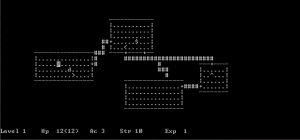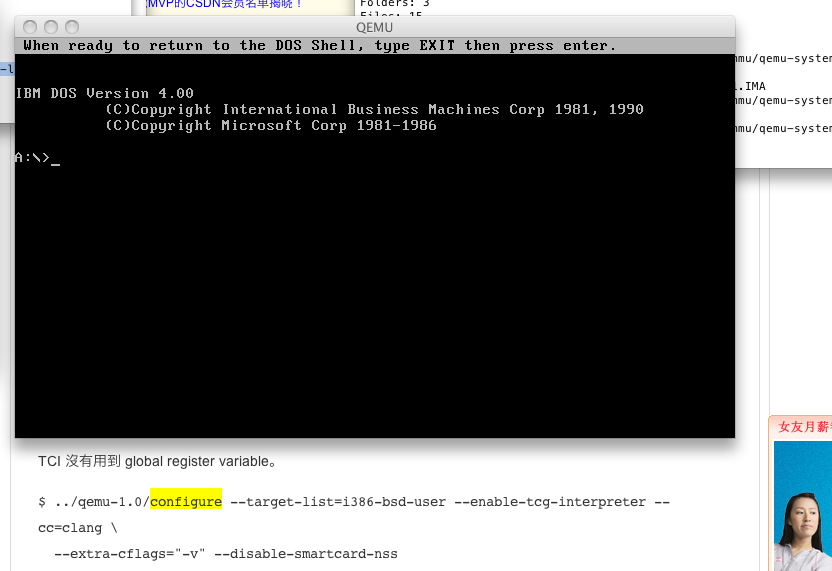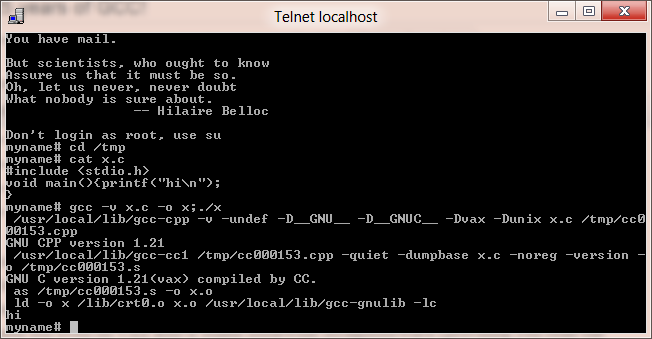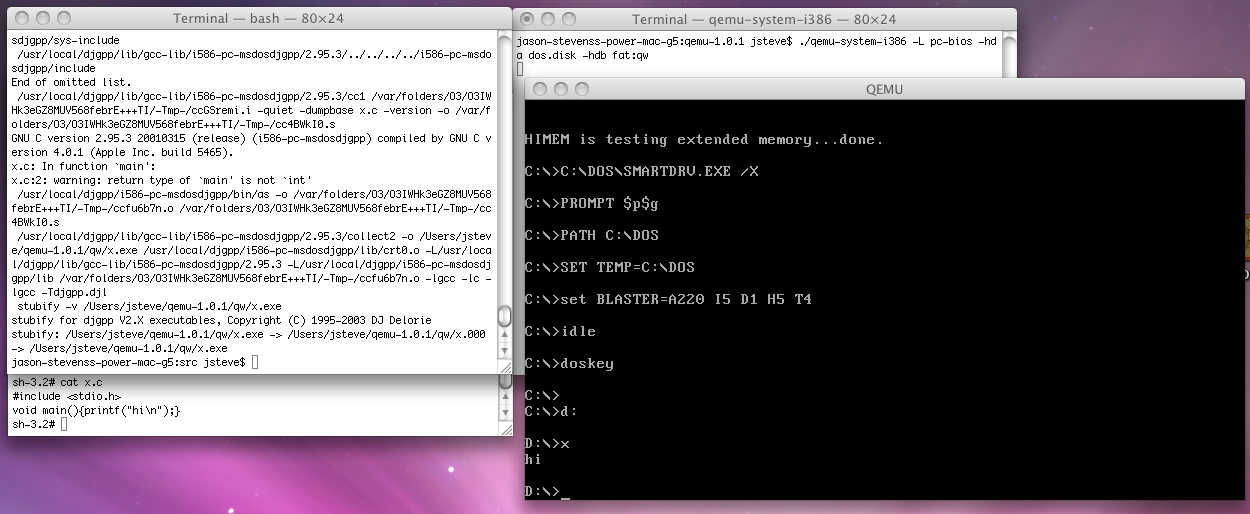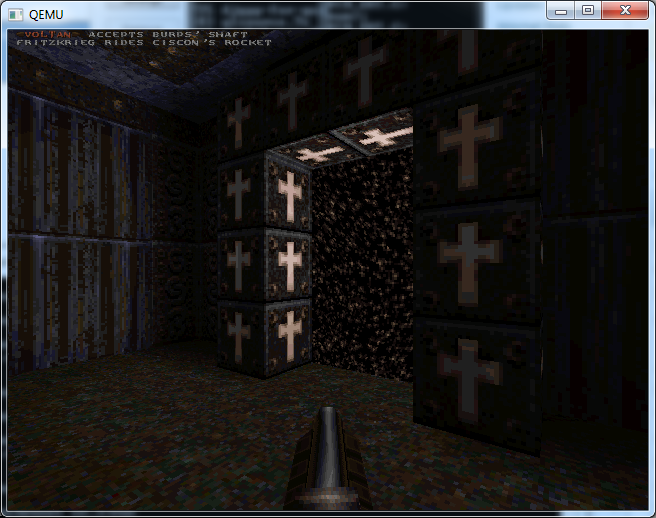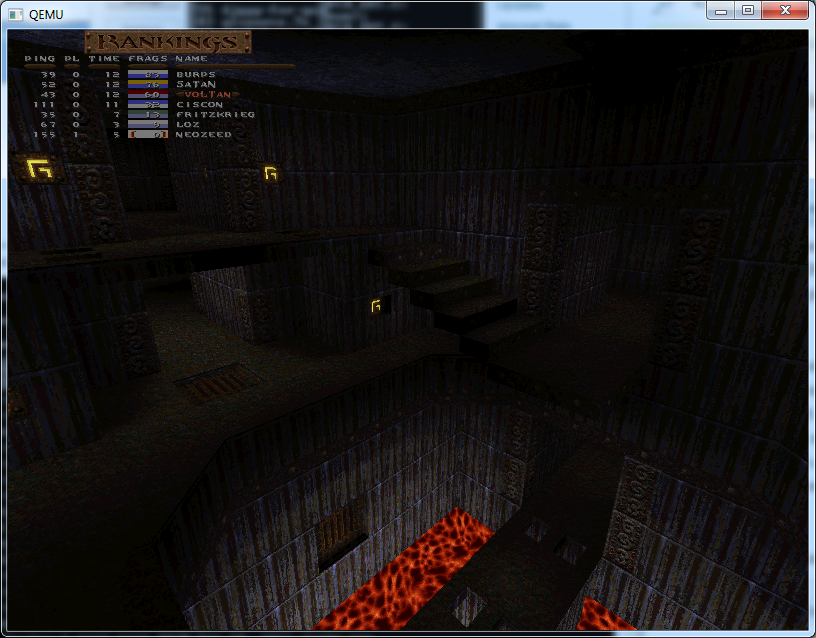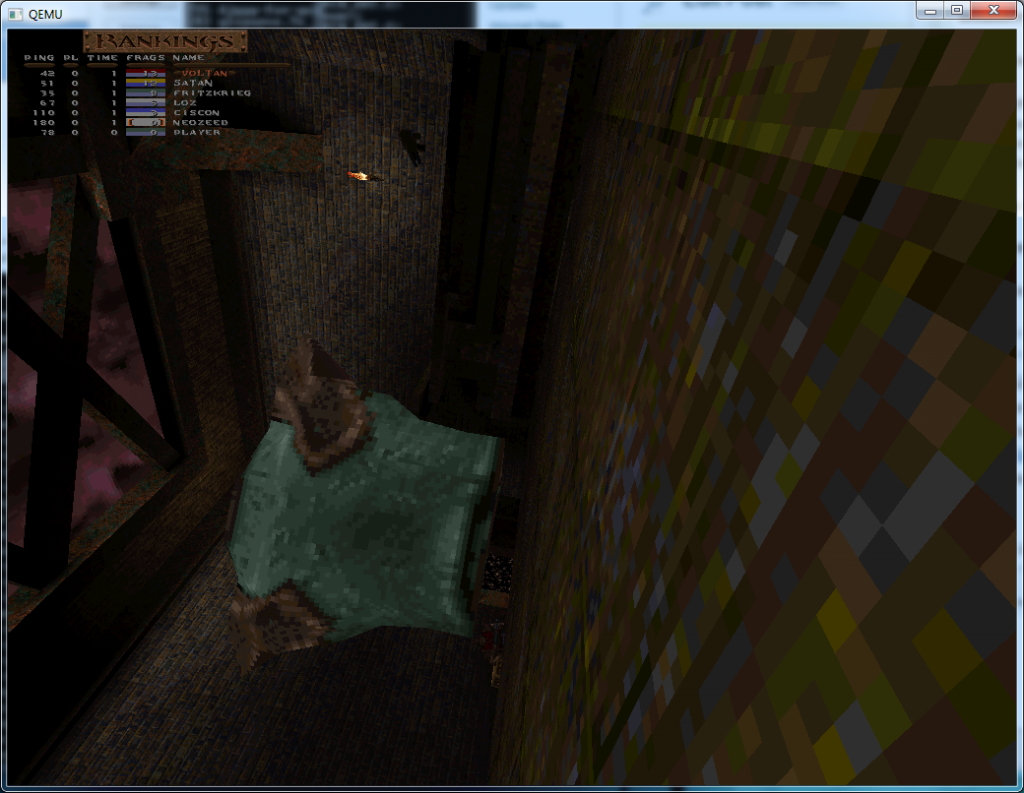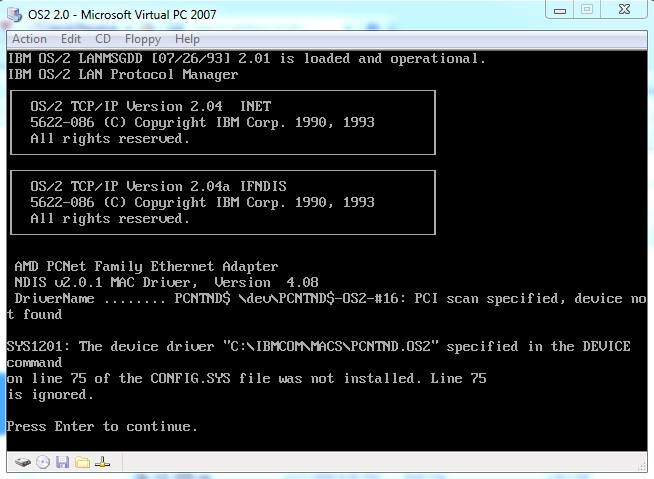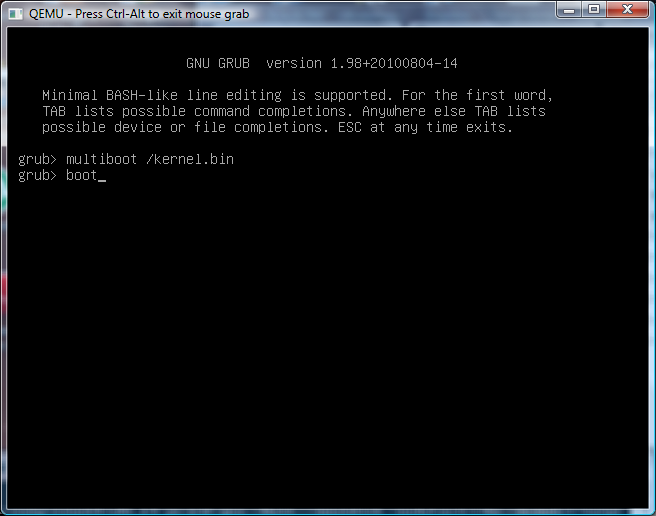I can’t stress enough just how awesome cd.textfiles.com is for finding ancient stuff!
I’m not sure why I started on this quest but I was looking for some old finicky DOS extender, and started hunting for Go32, the first DOS extender used by DJGPP. Â And for the heck of it, I wanted to find the first version, which I pretty much had assumed was lost to the mists of time.
However the CD-ROM shareware collection called MegaROM-1 actually had a ‘full’ copy of one of the first versions of DJGPP, 1.03.
Installation is pretty straightforward, however you have to use pkunzip for all the various old ‘methods’ of storing data in zip files, I found infozip leaves things out..
Also DJGPP 1.03 uses a LOT of environment space.. which is more so a problem for people running real MS-DOS on real machines.. (there are some!)…
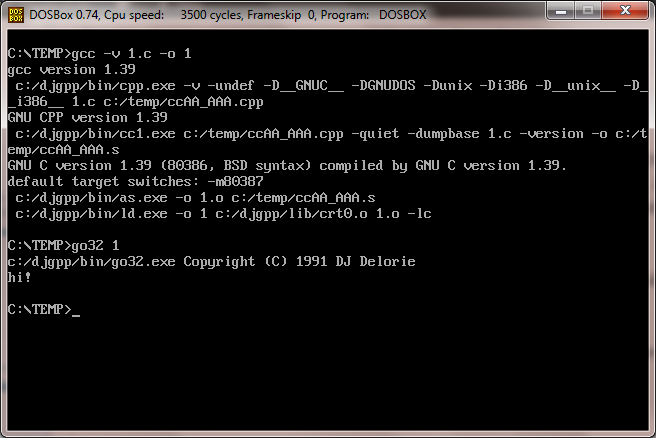
Hello World!
It runs in DOSBox, but there is no doubt some stack corruption as trying to run things like dos edit result in:

Packed file is corrupt
But at least we can run more than one copy, or use a native editor.
GO-32 from this era is *NOT* DPMI compliant, nor is it VCPI compliant. Â And its based on GCC 1.39, which was a popular level with things like 386 BSD, although it seems early Linux used GCC 1.40 .. Â The tool chain by default outputs the GNU a.out format, but relies on modifying the linker that was separately included in G++. Â Later versions of GO32 included VCPI support, and near it’s end of life version 1.10 added support for DPMI which greatly simplified things like hooking IRQ’s and doing DMA.
For those who want to play, without the pkzip fun, I’ve slapped it into a single 7zip file.  It’s not even a megabyte.  But it was 1991, when 4MB of ram seemed like an incredible amount of memory!

